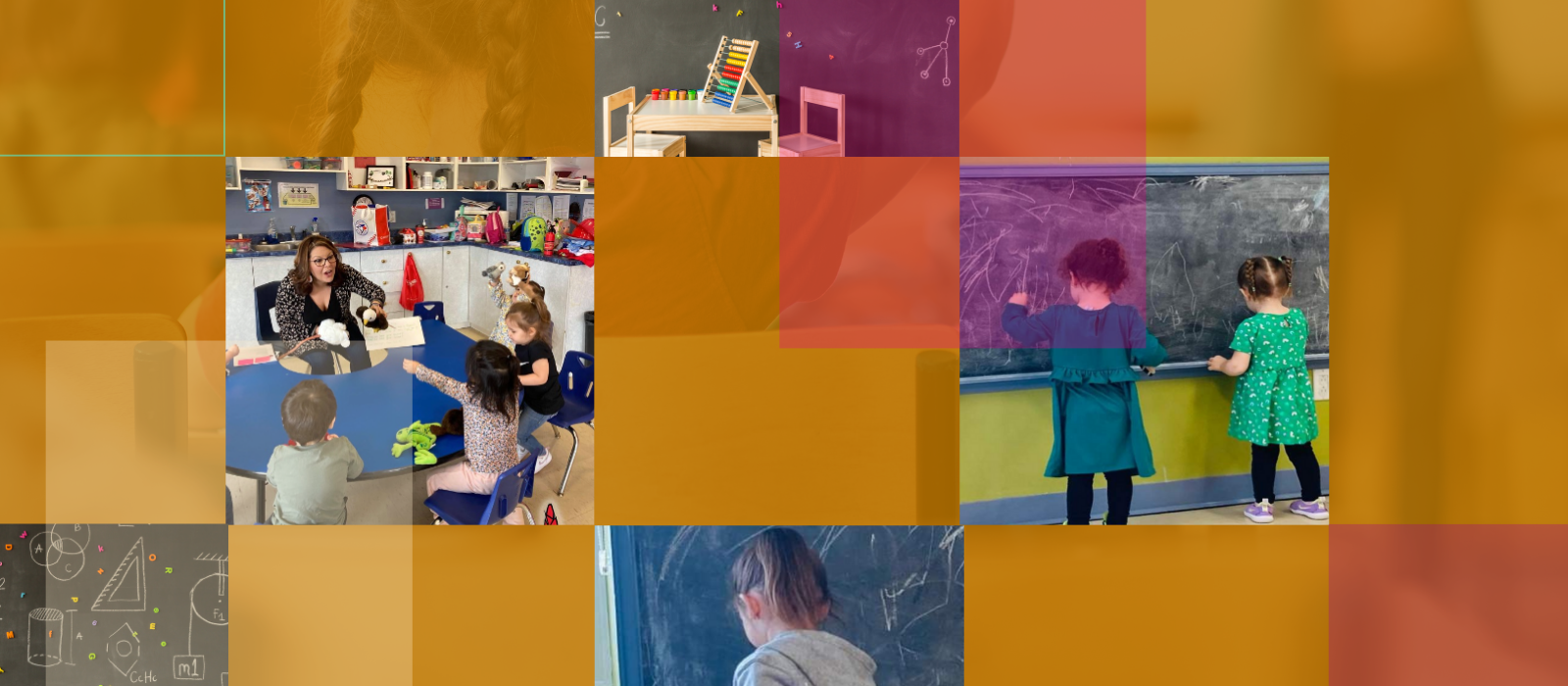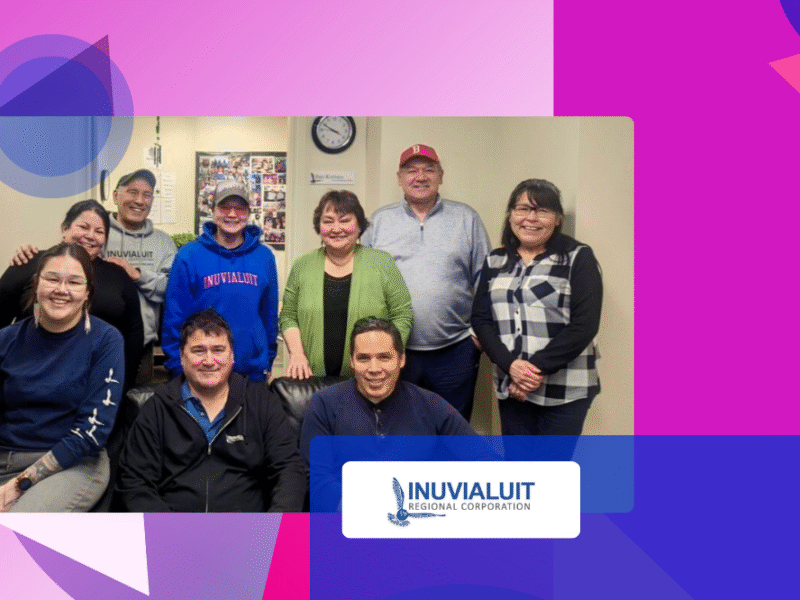New Brunswick Mi’kmaq community comes together to improve early childhood education

Through participatory engagement, parents, Elders, and community leaders joined forces to overcome quality of work concerns and define a new vision for childcare in their community.
On the banks of New Brunswick’s Northwest Miramichi River, a Mi’kmaq community has come together to chart a new course for educating its young people.
The results could mean big things for other communities and child care centres across Canada.
The “Building Capacity in Indigenous Early Childhood Education” project explores solutions to building capacity in Indigenous early childhood education for seven First Nations communities. It was conceived by the North Shore Mi’kmaq Tribal Council (NSMTC) in partnership with the Future Skills Centre. Developing a more equitable labour market and working towards Reconciliation starts with understanding the needs of Indigenous communities so that skills initiatives and solutions complement Indigenous cultural values and ways of knowing.
Through a series of surveys, sharing circles, consultations, and conversations with Elders, the project sought to generate community-identified solutions for the childcare system that would improve quality of work by expanding training and career development opportunities and strengthening Indigenous self-determination.
“First Nations families want the best for their children and know this can only happen in the community,” said Helen Bernard-Ward, an Early Learning Childcare Coordinator with Mi’kmaq Family Support, which is affiliated with the NSMTC. “Decision-makers need to begin to work with the community and the centers, as they’re the experts. They know what is best for children and advocate for that.”
A critical window of opportunity for development, and to disrupt pathways to poor health and education outcomes
Early childhood education is seen as a critical window of opportunity for development, and to disrupt pathways that can lead to poor health and education outcomes later in life. This is particularly true for Canada’s Indigenous population, who are disproportionately burdened by poor social determinants of health.
The issue is compounded by funding gaps between Indigenous and non-Indigenous child care programs, with research indicating a per-child difference of nearly $4,000 in the NSMTC’s region.
“Insufficient funds around capacity and maintaining staff has had a huge impact, which leads to barriers in creating space for parents to be more involved,” Bernard-Ward said. “At the end of the day, (child care staff) didn’t have the energy to plan accordingly because they carried too much responsibility for one person.”
To combat the problem, parents, Elders, and other community leaders joined forces to define what they wanted early childhood education to look like in their community, holding consultations about existing barriers and potential opportunities for improvement.
“The discussions were so very important in understanding if the material was truly reflective of their environments and knowledge,” Bernard-Ward said.
The project concluded with a symposium where a final report detailing a needs assessment was shared with all the community contributors, as well as local chiefs and government officials.
“We focus…professional development on culture, language, and our ways of knowing and being.”
Given the important role Indigenous Elders play in connecting past, present and future generations, a significant aspect of the process was creating an opportunity for Elders to articulate a vision for early childhood education in their communities. Elders requested that early childhood programming be decoded and decolonized, and for formal and informal learning to be balanced in culturally appropriate ways designed by and for the community.
“This is a top priority because we know that having children who understand who they are strengthens their sense of identity, and provides a path to becoming a successful member of their community and society,” Bernard-Ward explained.
Beyond integrating Elders as key assets to early childhood educators, other solutions identified through consultations with community members included increased investment into and the expansion of Indigenous-centred approaches to delivering early childhood education, more opportunities for staff to take part in training and professional development, and improved pay scales.
The NSMTC is also working to incorporate Indigenous practices and ceremonies into early childhood centres. “We would support having more funding opportunities to provide this revitalization of ceremony and language as we know how important it is for our children and Elders to have this connection,” Bernard-Ward said.
“We’ve been able to share our findings with other provinces and communities.”
Bernard-Ward said the project has gained attention from beyond New Brunswick.
“We’ve been able to share our findings with other provinces and communities to see if there are comparables,” she said. “There are mechanisms in place that have worked in other communities to identify and rectify these gaps.”
Ultimately, Bernard-Ward said the experience helped reinforce her belief in the inherent rights of Indigenous self-determination and self-governance.
“It’s the understanding that Indigenous communities across Canada have the knowledge keepers and experts to put together services and programs that are specific to their identity and culture,” she said. “We don’t need to be seeking out these things from groups that don’t have or haven’t been exposed to Indigenous ways of knowing and doing. This is a Constitutional right that we build things for us, by us, and with us.”
Click here to learn more about this project. Also, check out the Future Skills Centre’s Focus on Indigenous Initiatives and Partnerships to learn more about partnerships and initiatives with Indigenous communities across Canada.
The views, thoughts and opinions expressed here are the author’s own and do not necessarily reflect the viewpoint, official policy or position of the Future Skills Centre or any of its staff members or consortium partners.




